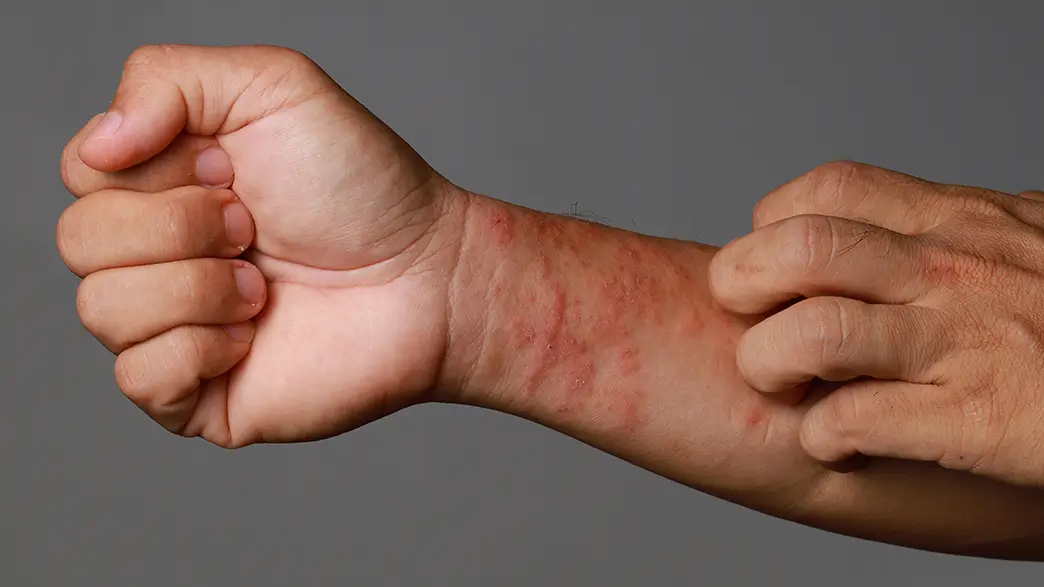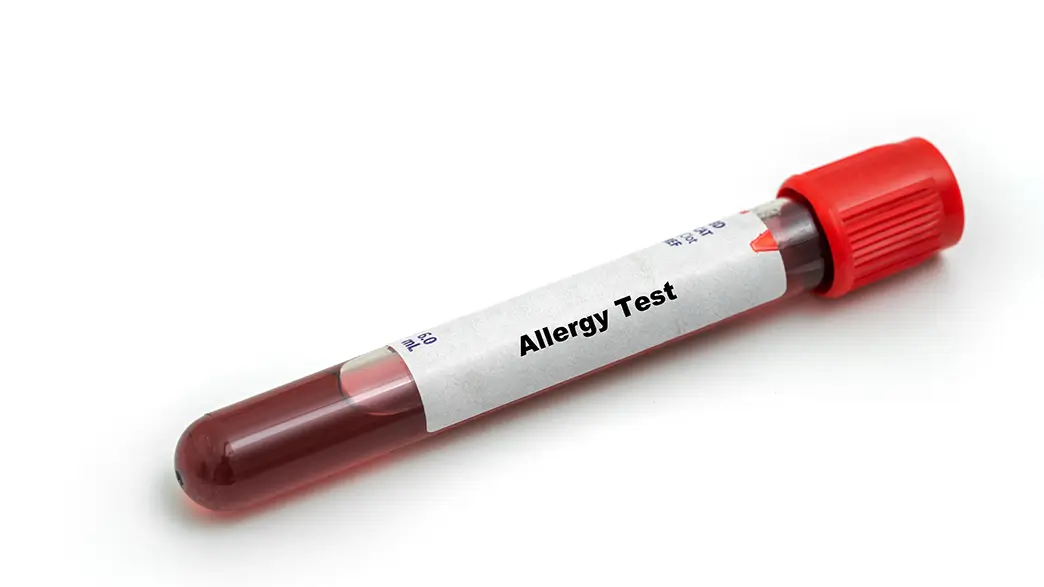
Drug Allergy – When the Immune System Rejects Medication
Drug allergies can be very problematic because if the immune system identifies a substance as harmful, it can significantly hinder the healing process of a disease or injury. True drug allergies are rare, but there are many medications, and each substance has the potential to trigger an allergic reaction. This is why approximately a quarter of the population in this country develops a drug allergy at least once in their life. Diagnosing such an allergy can be difficult since the symptoms often resemble drug intolerances or side effects, which are much more common. Fortunately, life-threatening consequences of drug allergies are also rare.

What is a drug allergy?
A drug allergy is an immune system response to a specific drug or substance. The allergy may go undetected for a while if its symptoms resemble the medication’s side effects. In most suspected cases, it’s not an allergy but a drug intolerance. While intolerances are often related to metabolic issues, drug allergies cause the body to produce antibodies that attack the perceived threat.
A drug allergy can manifest as either an immediate or delayed reaction. Immediate reactions occur shortly after taking the drug—either within minutes or hours. The symptoms may include respiratory issues, nausea, vomiting, or diarrhea. Skin reactions like redness, hives, and itching can also occur. Immediate allergic reactions can be severe, but life-threatening anaphylactic shocks are rare.
Delayed drug allergies often appear several days after the medication is taken, making them harder to diagnose. Common symptoms include the drug rash (exanthem), a red rash that can cover large areas of the skin or the entire body. Although drug rashes can be alarming, they are generally harmless. Severe reactions, while rare, do occur—for example, Stevens-Johnson syndrome, which causes blistering of the skin and mucous membranes.
The most common drug allergies are triggered by the following medications:
- Antibiotics, especially penicillin
- Painkillers like ibuprofen or aspirin. However, in many cases, it’s an intolerance to aspirin rather than an allergy (aspirin intolerance syndrome), often seen alongside other allergies.
- Anti-inflammatory medications like nonsteroidal anti-inflammatory drugs (NSAIDs)
- Antidepressants and antipsychotics
- Anesthetics and narcotics
- Blood pressure medications such as ACE inhibitors
- Epilepsy drugs
- Chemotherapy drugs
- Contrast agents for X-rays

How is a drug allergy diagnosed?
Diagnosing a drug allergy is similar to other allergy tests. First, the doctor needs to determine which medication to test or if the symptoms have another cause. Many symptoms could be attributed to other conditions, allergies, food intolerances, or food poisoning. A thorough medical history (anamnesis) is usually taken to establish when and how often symptoms occurred and what medications were taken. The dosage of the drugs may also play a role. For people taking multiple medications, it can take time to pinpoint the cause of a drug allergy.
Once the most likely triggers are identified, several allergy tests can be conducted. For immediate reactions, the prick test is often used. Small amounts of the suspected substances are placed on marked areas of the skin and pricked with a needle to allow the substance to penetrate. If an allergy exists, skin reactions should occur within minutes.
For delayed reactions, a patch test is commonly used. Small patches with potential allergens are applied to the skin for one to two days. Afterward, the skin is examined for any signs of a reaction that could indicate a drug allergy. Blood tests may also support the diagnosis. Another diagnostic option is the provocation test, where a small dose of the suspected drug is taken under medical supervision. The type of allergy test that makes the most sense can only be determined by a specialist.

How are drug allergies treated?
Drug allergies cannot be treated through desensitization. The only way to avoid symptoms is to completely avoid the trigger. This means the affected drug can no longer be taken. Fortunately, for most drugs, there are alternatives with different active ingredients that offer similar effectiveness. If a crucial drug cannot be easily replaced, such as in cancer therapy, it may be considered for continued use despite the allergy. The severity of the drug allergy must then be weighed against the benefits of the medication.
Acute symptoms can be treated with antihistamines or corticosteroids. In the event of anaphylactic shock, adrenaline is used. Patients with life-threatening drug allergies may carry special emergency kits, which include medications like epinephrine that can be self-administered with a pen-like injector.
If you suspect you are allergic to a medication, it is essential to seek medical attention. It may take some time to get a clear diagnosis of a drug allergy, so it’s better to visit an allergy clinic or specialist sooner rather than later.



